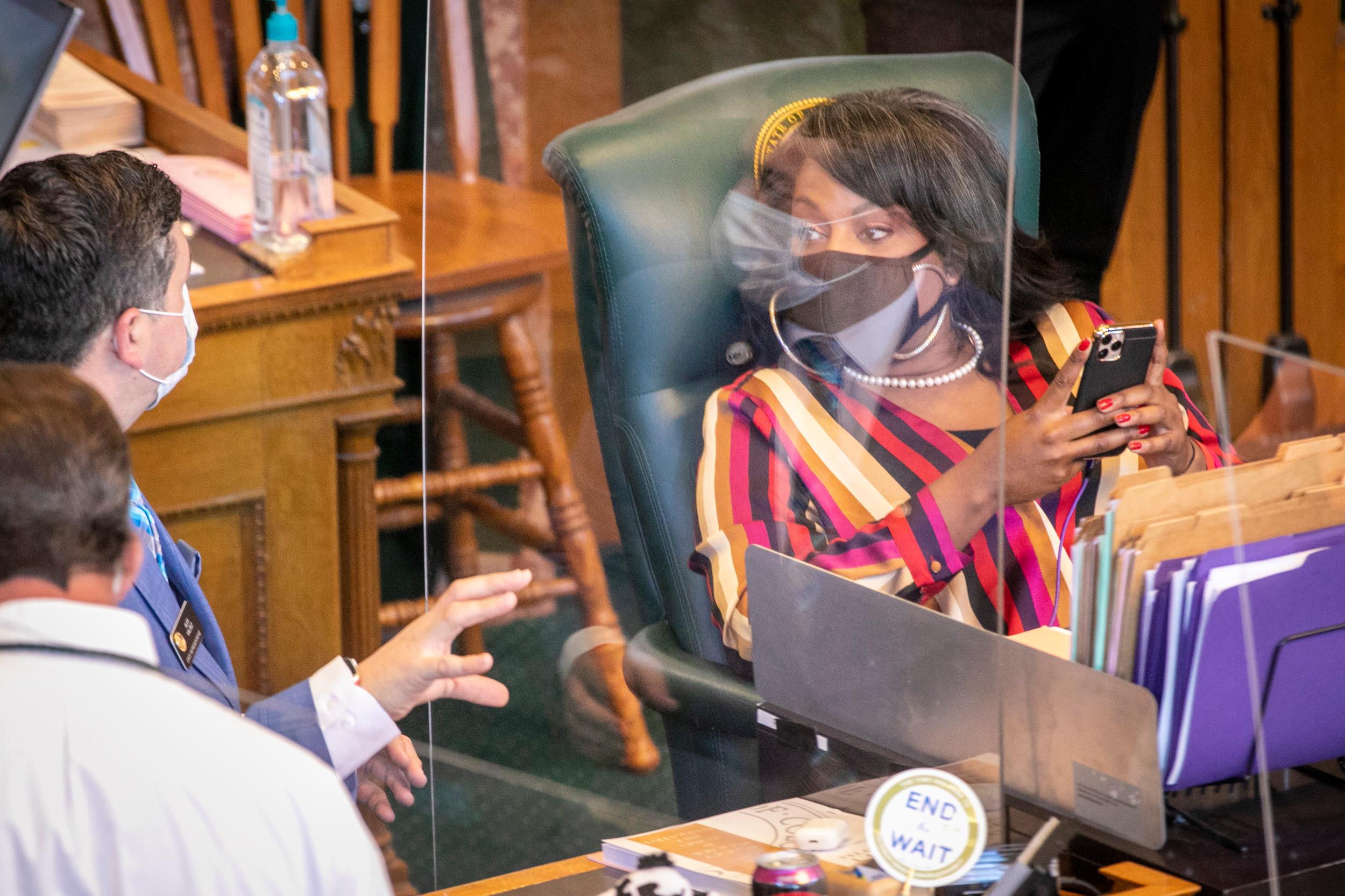
Colorado lawmakers have changed their rules to allow members to virtually participate in hearings and debates, and vote remotely. It’s a significant change that met with heavy opposition, just a day after the legislature resumed its work.
Both chambers passed the rule changes along party lines after hours of debate. Democrats uniformly argued that the changes would allow their colleagues with health concerns to participate in public policy without risking serious illness or death in a declared public health emergency.
“That's not a risk that's worth taking,” said Democratic Senate Majority Leader Steve Fenberg, urging his colleagues to pass the rules and move on to bigger topics that impact Coloradans' lives.
Senate Republicans agreed lawmakers who don’t feel safe shouldn't come to the Capitol, but argued that allowing remote participation would fundamentally erode parliamentary rules, weaken public oversight and lead to unequal representation.
“Don't take away my ability to have a conversation with you,” said Republican Sen. Jim Smallwood of Littleton to his Democratic colleagues. “For my constituents, it's not fair and it's not right that I can't have a conversation with you, that we can't make good legislation better.”
Smallwood, who had COVID-19 and recovered from it, said he’s sympathetic to colleagues who fear getting sick, but he said his elected role would be undermined by remote work.
"We need our members to live through this pandemic"
A handful of lawmakers either plan to work remotely or want the flexibility to do so. Democratic Rep. Dominique Jackson of Aurora has not returned to the legislature this week, but plans to attend in person on Thursday when she chairs the House Energy and Environment Committee.
She has an autoimmune disease and hopes to limit her time in the Capitol.
“I’ve talked to all of my doctors and they don’t want me to come in. I’m aware the more I expose myself, the more often I do that, the more likely it is that you’re going to get sick.”
Jackson, who is African-American, was one of three House Democrats who were absent on Tuesday when the legislature reopened. All three are African American. State health reports have shown that black people make up about 7 percent of COVID-19 deaths, while they are only about 4 percent of the population, a trend that has been repeated nationally.
The House debate grew especially heated after Rep. Leslie Herod, who chairs the Black Legislative Democratic Caucus, asserted that the outbreak was especially dangerous for black communities.
“We need our members to live through this pandemic so we can continue to fight for our communities who are disproportionately impacted by the health impacts that we have put on our community,” she said.
She urged lawmakers not to write off the absent legislators as “lazy.”
Minutes earlier, Republican Rep. Larry Liston had said that soldiers and legislators in World War II did their jobs despite danger. “If it’s good enough for our soldiers, if it’s good enough for other elected officials, it should be good enough for us.”
Republican Rep. Richard Holtorf had urged people to “lead, follow, or get out of the way,” and compared absent lawmakers to soldiers who are “away without leave.” He warned that policymakers could get drunk or fall under outside influences while working from home.
Democratic Rep. Jovan Melton is one of a half-dozen lawmakers who are staying away from the Capitol. He has suffered from pneumonia and heart failure over recent months, he said, but he was so angered by Republicans’ comments on Wednesday that he drove to the capitol mid-debate.
“To be compared to a person that went AWOL, to be compared to a soldier that wasn’t willing to do their duty -- that hurt,” he said. “And it’s a shame that I had to drive across town, against my doctor’s order, to be here, to speak up and ask for some compassion.”
Partisan ramifications
For Democrats, allowing limited remote voting helps ensure they continue to control both chambers. In the House, the party holds a 17-seat advantage. But in the Senate, Democrats have only a two vote majority. On the first day of the new session, three Democratic senators stayed away, but all of them returned on Wednesday to pass the procedural rule change.
Republicans objected to Democrats’ decision to pass the rule change with a simple majority, instead of getting two-thirds support.
The remote participation rules will only remain in effect while there’s a public health emergency, and lawmakers must provide a reason for not coming in, including that they or their families are at special risk.
“This is about a virus that is out of control,” said Democratic Rep. Brianna Titone of Arvada. “This is about using the technologies that we have.”
However Republican Rep. Matt Soper argued that remote voting would be “greatly discriminatory” to legislators in rural Colorado. “My internet is not fast enough,” he said.
Republican Sen. Bob Gardner said that lawmakers used to take risky journeys on donkeys and other livestock to get to the Capitol in Denver, and that even today those from southern Colorado make the dangerous drive through the notorious “gap” segment of Interstate 25.
“If you’re going to do the work of the people, you (must) be down here,” said Rep. Dave Williams, one of a few GOP lawmakers who wasn’t wearing a mask during the debate. “No one told those members to stay away, and no one told them to come in and risk themselves either.”
Democratic Rep. Shannon Bird said that it was “completely unfair” for lawmakers like Williams to argue against remote participation while also refusing to take personal safety precautions recommended by the Centers for Disease Control.
“If we're going to demand people to come,” Bird said, “then it’s incumbent upon us to make sure that those people have a fair opportunity to feel safe and to know that their colleagues respect their health.”









